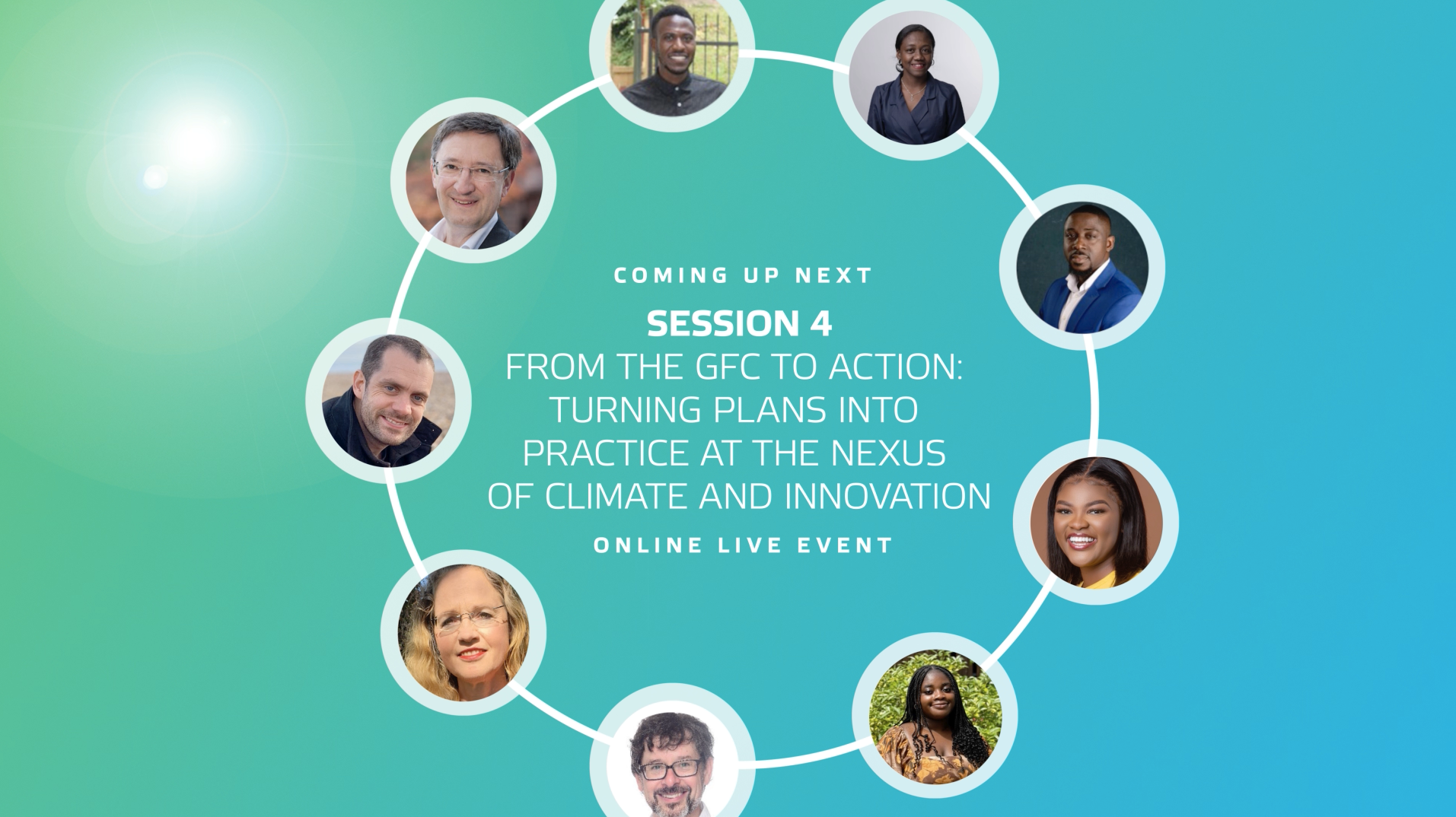ISC3

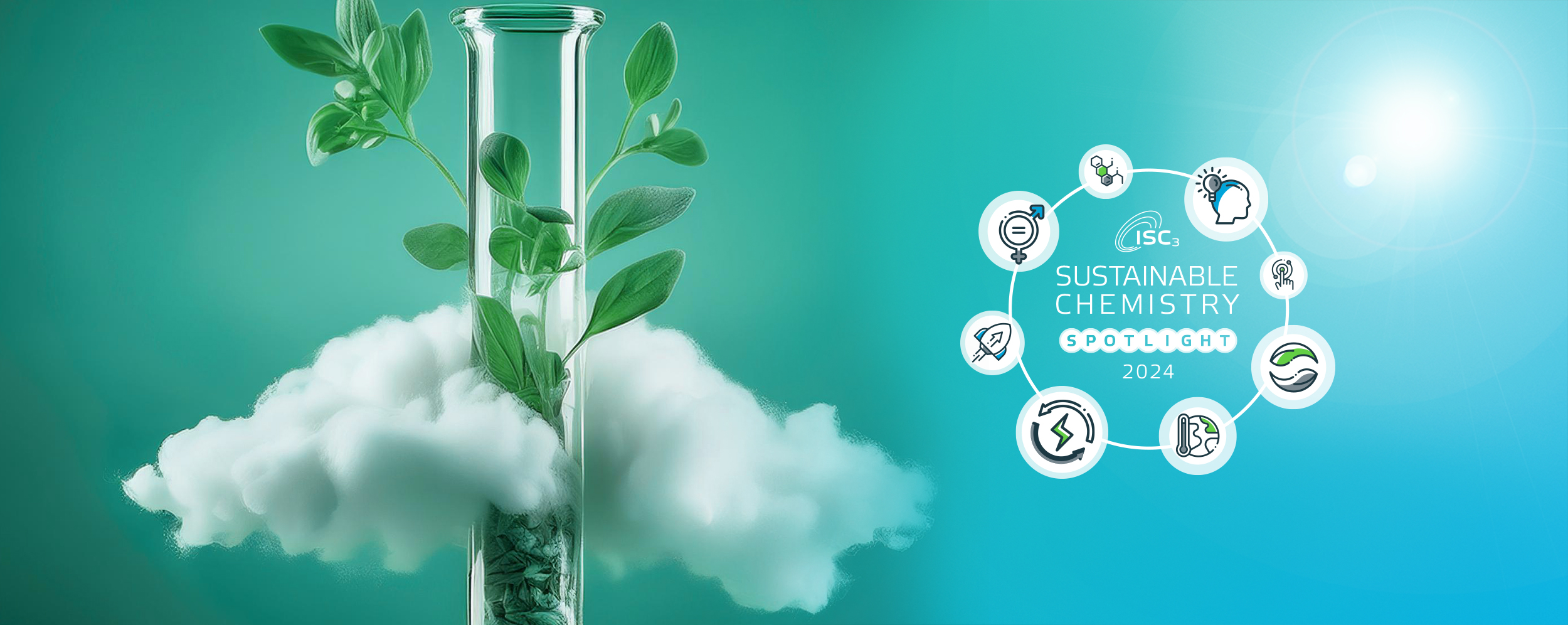

The SPOTLIGHT 2024 event took place on the 28th of September with great success. With a focus on innovative approaches on the nexus between Sustainable Chemistry and Climate Friendly Solutions, participants shared insights and exchanged innovative ideas for an incredibly fruitful event.
SPOTLIGHT 2024 began with a discussion on bioeconomy and its importance in the development of Ecuador and Uruguay, this was then followed by a presentation on bioeconomy as a strategy for sustainable development in Latin America, which was the result of stakeholder workshops with representatives from Uruguay, Ecuador and Germany, organised by ISC3. Lastly a recount was given of the study trip that delegates from these regions took part in to learn and understand Germany’s approaches to bioeconomy.
The next session focused on issues and challenges in global chemical waste and how data science could be leveraged in the fight for a cleaner, safer world. An introduction to the programming language Python was given, followed by a presentation showing how the analysis and visualization of real-world data can be achieved through Python. The session was rounded off with an engaging discussion around how youth activists can use environmental data to engage in the climate conversation.
The final session of the event centered around the Global Framework on Chemicals (GFC) and climate-friendly innovations. An introduction to the GFC was given, and a call to the importance of its implementation was made. Finally, as part of the ISC3 Global Start-up Service partner network, funding avenues in Africa, such as the African Climate Innovation Challenge (ACIC) and the Africa Youth Climate Fund, were introduced and examples of innovative solutions to climate problems within Africa were presented.
Climate change is one of the most pressing challenges of our time. Since the chemicals industry and its innovations are a fundamental cornerstone of our everyday life including mobility, the energy and digital sector, the worldwide implementation of Sustainable Chemistry is key to develop future-oriented low-emission processes and products. In his presentation, Prof. Dr.Kümmerer introduced the evolution of Sustainable Chemistry, starting from chemistry as natural science to green chemistry and chemistry for a circular economy. He highlighted the differences between these concepts and discussed the challenges and opportunities related to the implementation of low carbon technologies (low carbon – high metal) from a sustainability perspective and discussed the limitations of renewables.
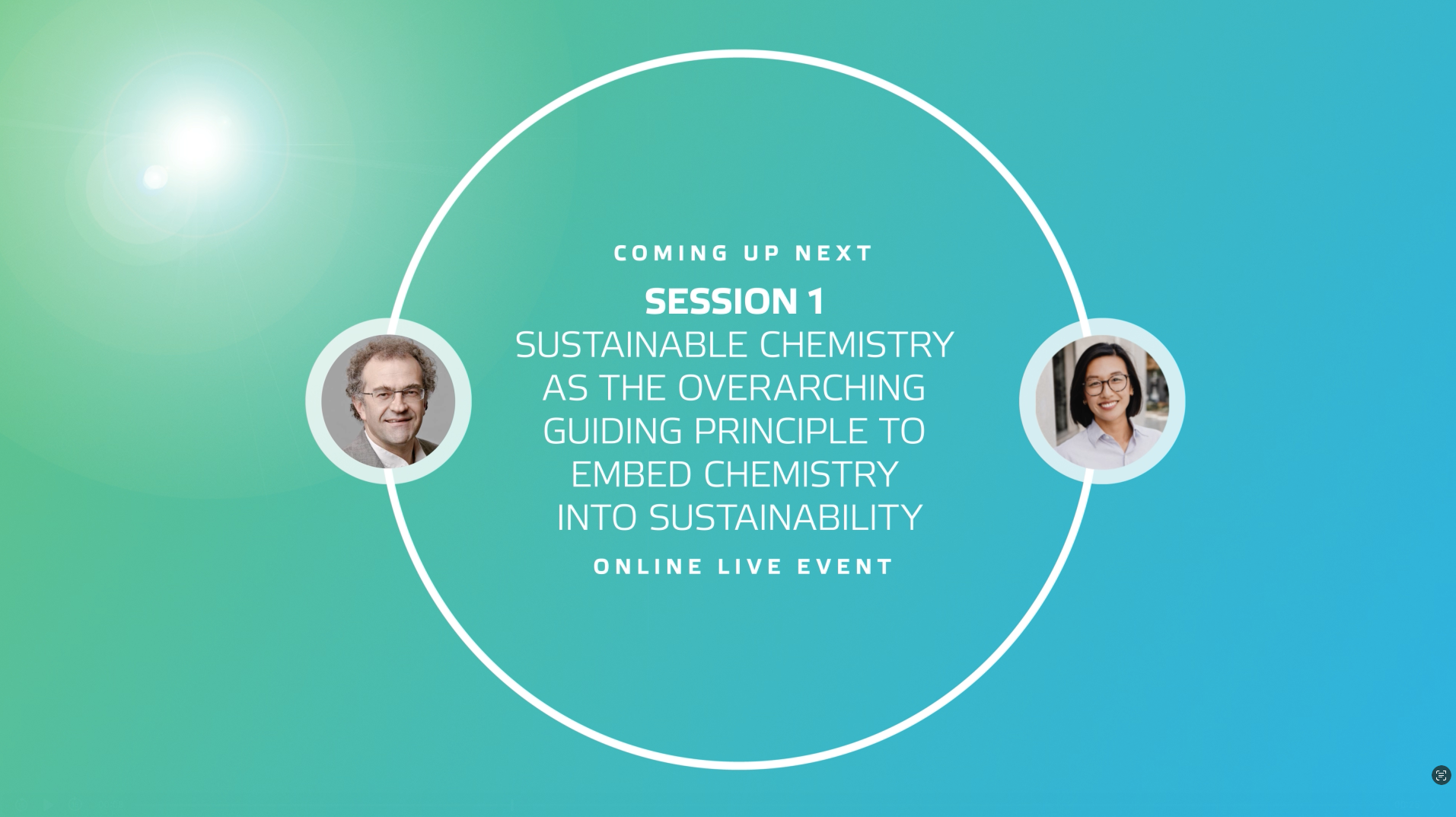
Session 2 of the ISC3 Spotlight centered around bioeconomy and its role in the sustainable development of Latin America. It began with a keynote presentation by Adrian Geraldo Rodriguez on bioeconomy and sustainable development policies within Latin America. Adrian Geraldo Gonzalez is the head of the Agricultural Development Unit at the UN Economic Commission for Latin America and the Caribbean (ECLAC). Adrian spoke of the importance of bioeconomy, its key role in productive development policies, and the work ECLAC has done in enabling the development of the sector in the region. He was then joined by Angela Cortelezzi Ferreyra (Ministry of Livestock, Agriculture and Fisheries, Uruguay) and Gonzalo Criollo Galván (Conquito, Economic Development Offices of Quito, Ecuador) for a discussion moderated by Juanita Halblaub (ISC3). Together they discussed the bioeconomy landscape within Uruguay and Ecuador, and stressed the importance of engaging the government, public and private sectors for the development of the region.
Nadine Stöcker (ISC3) then gave a presentation on the results from two stakeholder workshops that took place in 2024, which discussed current practices and future actions that can be taken to strengthen the bioeconomy in Ecuador and Uruguay. These workshops, organized by ISC3, fostered exchanges between multidisciplinary experts from Uruguay, Ecuador and Germany. Lastly, an overview was given of the study trip that delegates from these regions took part in, to learn and understand Germany’s approaches to bioeconomy.
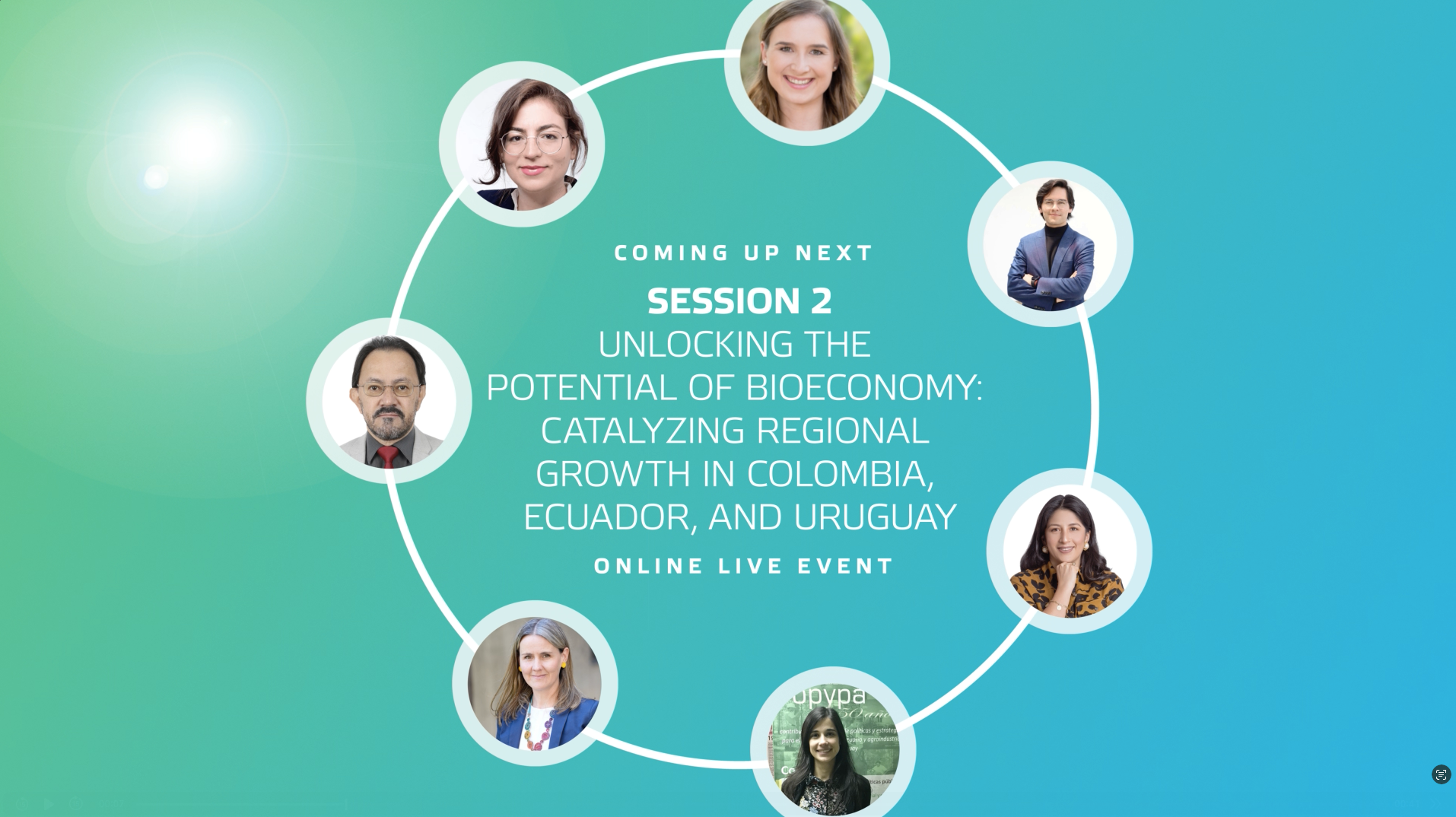
Session 3 of the ISC3 Spotlight shone a light on how data science can be leveraged for more policy impact, with a focus on the areas of climate change and pollution. Lovish Raheja from the International Younger Chemistry Network (IYCN) and Anna Becker (ISC3) began the session by demonstrating why science-based approaches, such as data science, are crucial for youth activism in fight against the climate crisis.
José Caetano (IYCN) then gave an introduction to the programming language Python before demonstrating, in real-time, how the visualization of real-world data can be achieved through Python. Through this guide, José showed how interpreting and analysing real-world environmental data can enable sustainable decision making. Following the demonstration, José and Lovish were joined by Ahmed Tiamiyu from Community Action Against Plastic Waste (CAPws) to discuss the importance of reliable data, and how using data can empower activists in their story telling and advocacy of important causes.
The session was rounded off by a call-to-action from Ahmed to engage and explore how to tackle the intersection between climate change, chemical waste, and social justice.
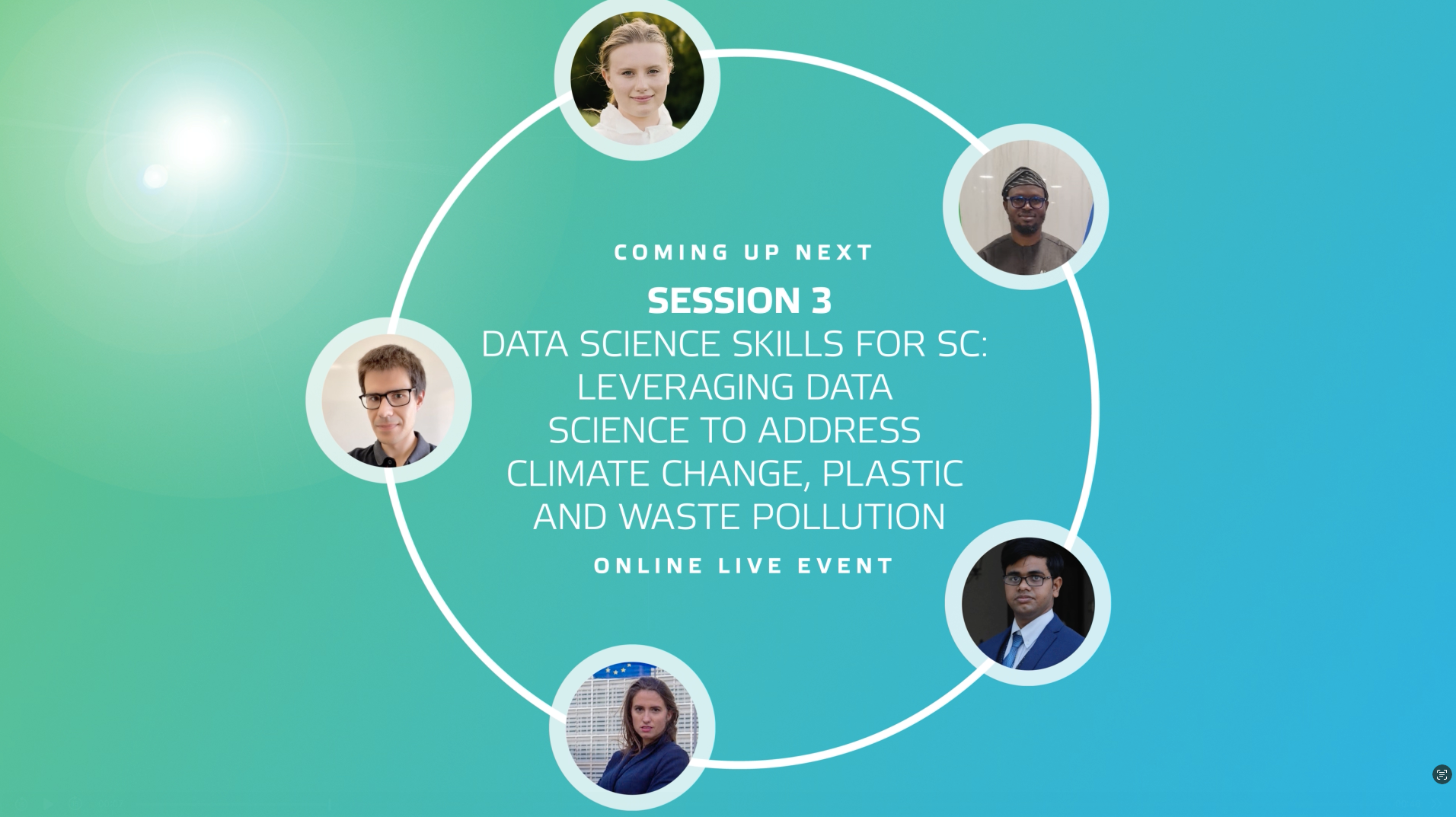
Session 4 of the ISC3 Spotlight, moderated by Alexis Bazzanella (ISC3), focused on the interface between the Global Framework on Chemicals (GFC) and the innovations in climate solutions. An introduction to the GFC was given by Oliver Wootton (United Nations Institute for Training and Research - UNITAR) followed by a presentation on what the Inter-Organization Programme for the Sound Management of Chemicals (IOMC) is doing to support the development of GFC Implementation Programmes. Steffi Richter from the German Federal Ministry for the Environment, Nature Conservation, Nuclear Safety and Consumer Protection (BMUV) then highlighted the importance of the GFC and its implementation, for a sustainable economy and sustainable chemical management. Steffi Richter also spoke on behalf of Hans-Christian Stolzenberg, from the German Federal Ministry of Environment (UBA), about the role of the GFC National Focal point and the German government’s commitment to the implementation of the GFC.
The second half of the session looked at innovative climate solution start-up scene in Africa. Samuel Opoku from StartUp Lounge Africa introduced the African Climate Innovation Challenge (ACIC) and their support of innovative start-ups that tackle climate change mitigation and adaptation. Following this, three success stories coming from the ACIC were presented. Johannes Amo-Aye (MINAGIE Energy Ltd.), Niriko Jouberthe Raissa Razafiarivony (Action for Community and Biodiversity) and Isaac Ndyamuhaki (Asili Kwanza Uganda) shared their experiences and what they have been able to achieve in the realm of climate change solutions due to the ACIC funding. The final speaker, Dorcas Amanor from the Green Africa Youth Organization (GAYO), introduced the Africa Youth Climate Fund and its role in supporting and empowering African students researching climate change solutions.
The final session of the event concluded with a discussion about challenges and actions that can be taken in the implementation of the GFC and climate change solutions.
